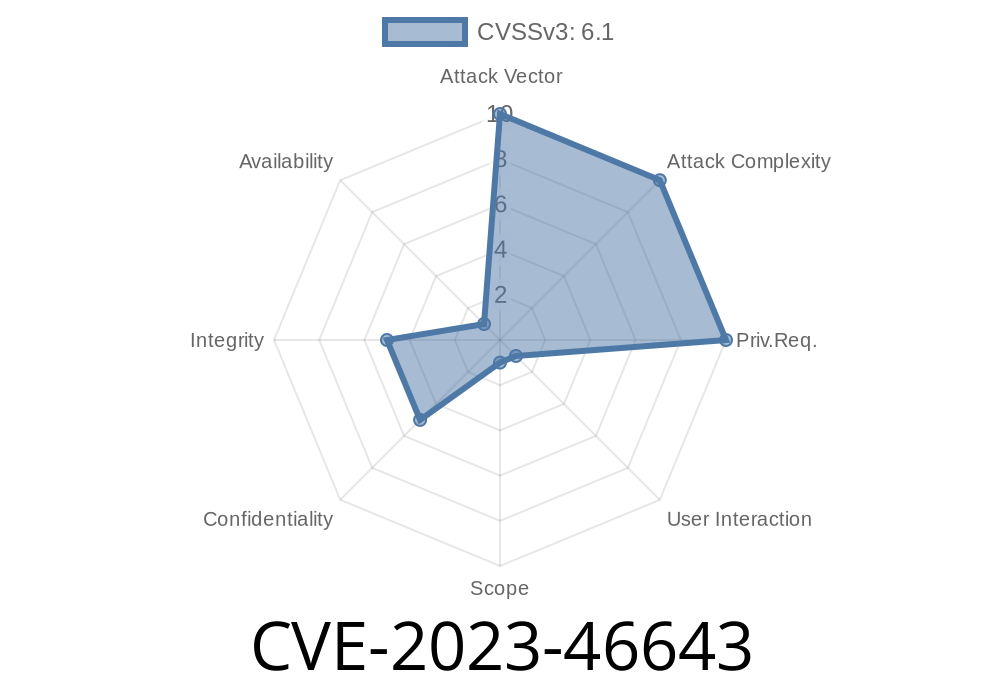---
Overview
On October 30th, 2023, a security vulnerability was publicly disclosed affecting CloudNet360, a popular WordPress plugin developed by Gary Jezorski. Tracked as CVE-2023-46643, this flaw is an _unauthenticated reflected cross-site scripting (XSS)_ vulnerability that could let attackers inject malicious code into websites using CloudNet360 plugin versions up to and including 3.2.. If exploited, a hacker could steal session cookies, take over accounts, or perform actions on behalf of unsuspecting visitors — all without needing to log in.
What is Reflected XSS?
Reflected XSS happens when user input from URL parameters or forms is immediately "reflected" in the website’s response without proper sanitization. A classic scenario? An attacker gets a victim to click a link that contains a script payload; the website then processes and outputs that code on the page, causing the victim’s browser to execute it.
Author: Gary Jezorski
- WordPress Plugin Repository: CloudNet360
Vulnerability Details
The vulnerability exists in how the CloudNet360 plugin processes certain request parameters without sanitizing or escaping them before they are embedded in the admin interface or public pages.
Specifically: If an attacker knows the vulnerable parameter, they can craft a URL containing JavaScript code, and if a logged-in administrator or even a public user clicks that link, the code executes in their browser context.
`
https://victim.com/?cloudnet360param=%3Cscript%3Ealert('CloudNet360-XSS')%3C%2Fscript%3E
`
Example vulnerable code snippet (simplified pseudocode)
// Imagine this happens in the plugin source
$param = $_GET['cloudnet360param'] ?? '';
echo "<div class='cloudnet360-msg'>$param</div>";
// No escaping or sanitization leads to XSS!
In this scenario, if the plugin takes $_GET['cloudnet360param'], and prints it directly to the page, JavaScript code in the parameter runs in the context of the site — *that’s reflected XSS.*
Real Exploit Example
If you want to test this vulnerability on your own (do not attack others’ websites!), try the following:
`
https://your-site.com/?cloudnet360param=
Load the URL in your browser.
If you see a JavaScript alert, your site is vulnerable.
Immediate recommendations
- Upgrade the CloudNet360 plugin to the latest version (check the WordPress plugin page for updates).
- Sanitize all user input before reflecting it in any output. In PHP, always use functions like htmlspecialchars() or esc_html() (for WordPress) on any untrusted input.
Example of how the plugin should fix this
// Secure code: escape output!
$param = $_GET['cloudnet360param'] ?? '';
echo "<div class='cloudnet360-msg'>" . htmlspecialchars($param, ENT_QUOTES, 'UTF-8') . "</div>";
References
- CVE-2023-46643 on CVE.org
- CloudNet360 Plugin Page
- WPScan Advisory
- Reflected Cross-Site Scripting (OWASP)
Conclusion
CVE-2023-46643 shows how a simple input handling mistake can open the door to major security risks. If you manage a WordPress site running CloudNet360, update your plugin ASAP and always check that user-supplied data is properly sanitized. These XSS bugs might be “old school”, but they're still one of the top ways hackers compromise sites. Don’t let your website be next!
Timeline
Published on: 11/08/2023 17:15:07 UTC
Last modified on: 11/15/2023 17:37:46 UTC
